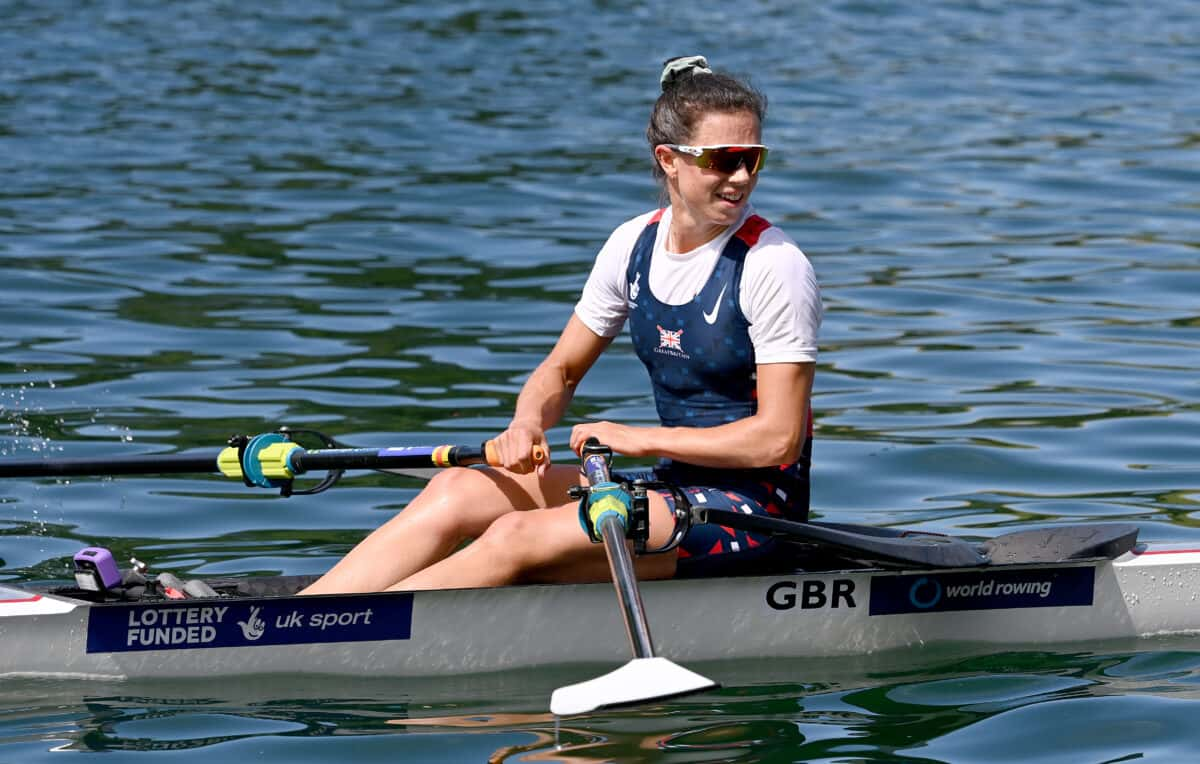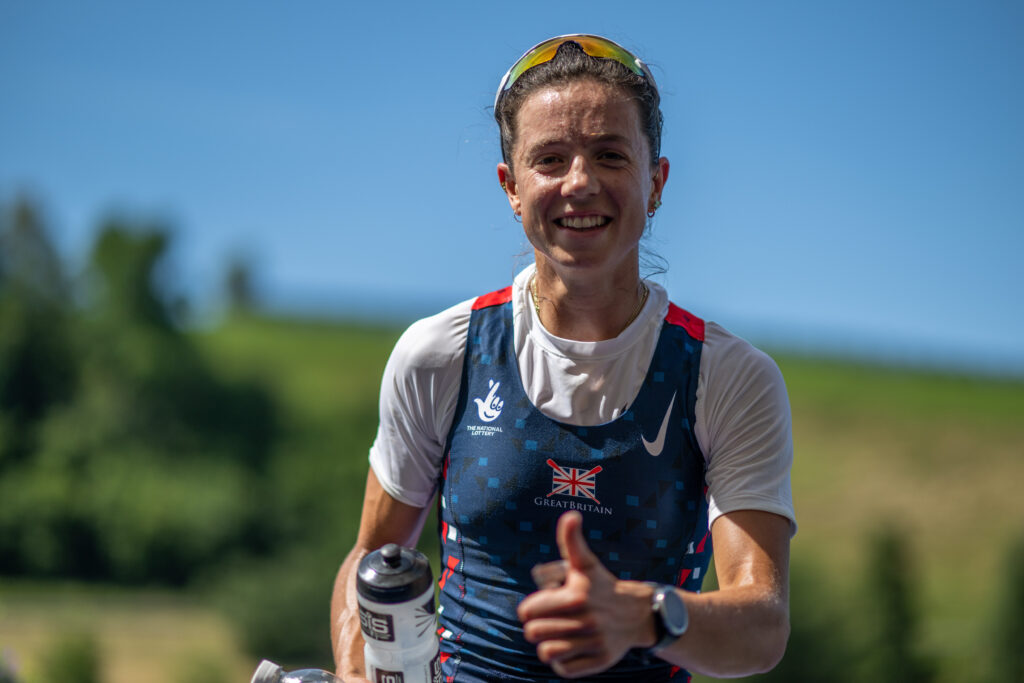
07 Oct 2024
Healthy waters close to IOC award-winner Imogen Grant’s heart
The International Olympic Committee (IOC) announced that Olympic and world champion Imogen Grant was one of the winners of this year’s Climate Action Awards.
The awards recognise athletes and organisations who have been proactive in tackling climate change, and in their second year, Grant is the first rower to win. Her award comes as World Rowing ramps up its partnership with the WWF to raise awareness about the importance of Healthy Waters.
Imogen Grant has become a leading force in the fight to improve water quality in the UK. She is an ambassador for the Rivers Trust, which oversees the conservation of rivers around the country.
“Leaning on their wealth of knowledge has helped me enormously to encourage others to test their local rivers, and participate in campaigns to clean them up,” Grant says.
“Given that as a rower I can spend upwards of four hours a day on the water during parts of the season, I have seen the worsening conditions of our rivers and lakes. Currently, zero per cent of rivers in the UK are classed as being in good overall health, and that is something I think is really important to change.”
Water testing is a big part of what Grant has been doing.
“Water quality testing is one of the most important ways of bringing attention to the state of our rivers, as much of the legislation and campaigning is based on citizen science testing. I am working with British Rowing to enable more rowing clubs to test their own stretch of water, to understand how dirty their river is, and give them the data to do something about it,” she explains.
The data could inform actual change in the future and drive efforts to force the government to take action against polluters. Water companies around the country have been criticised in recent months for repeated sewage dumps in UK rivers – with the story hitting national headlines when high levels of the bacteria E.coli were found in the river Thames ahead of the annual Boat Race between Oxford and Cambridge universities – but so far little has been done to stop the discharges.

“More than 9,000 people this year have completed the Big River Watch, a six-monthly survey of rivers in the UK, and this data has been added to maps to assess different areas of the country. We are highlighting some of this at an upcoming March for Clean Water on November 3rd, which I am hoping will help bring about legislative action,” Grant adds.
Grant was also key in efforts to form the Clean Water Alliance, which launched in April 2024 as seven British water sports governing bodies – including British Rowing – came together in a bid to influence the government and other decision-makers to clean up the country’s waterways and coasts.
She thinks rowers can play a big part in helping to clean up the water that forms such a key part of the sport.
“As river and lake users, I think we have a responsibility to engage with the water we row on beyond just going out for training,” Grant says.
“Rowing clubs are a natural community, and there will be so many good ideas ready to be suggested: things like water testing, litter picking, swapping out washing up liquid for something safe in rivers, investing in electric launches, the list goes on!
“For athletes, it’s worth remembering that we can have an impact above and beyond just what we do when we’re competing. You don’t need an Olympic gold medal to be a role model in sustainability. Speak up, encourage others to do the same,” she says.
The GB rowing team and British Rowing are also doing its bit to improve the sustainability of the sport.
“It’s been really amazing,” says Grant, of their initiatives. “Our sustainability working group has coaches, support staff, and athletes in it, and we have managed to do things like set up a compost heap and gel packaging recycling at the training centre.
“The British Rowing sustainability strategy launched earlier this year, and their work as part of the Clean Water Alliance is leading the way for British national governing bodies to work together to solve this issue.”
In a similar way, Grant says she is happy that World Rowing and the WWF are working together to enable federations, clubs and athletes to collaborate on projects to improve water health around the world.
“I am so glad to see that World Rowing have committed to the Healthy Waters Alliance, something that is impactful and long lasting. Making a change overnight, and having continued investment in water quality is the only way we can improve things for the long run,” she concludes.

